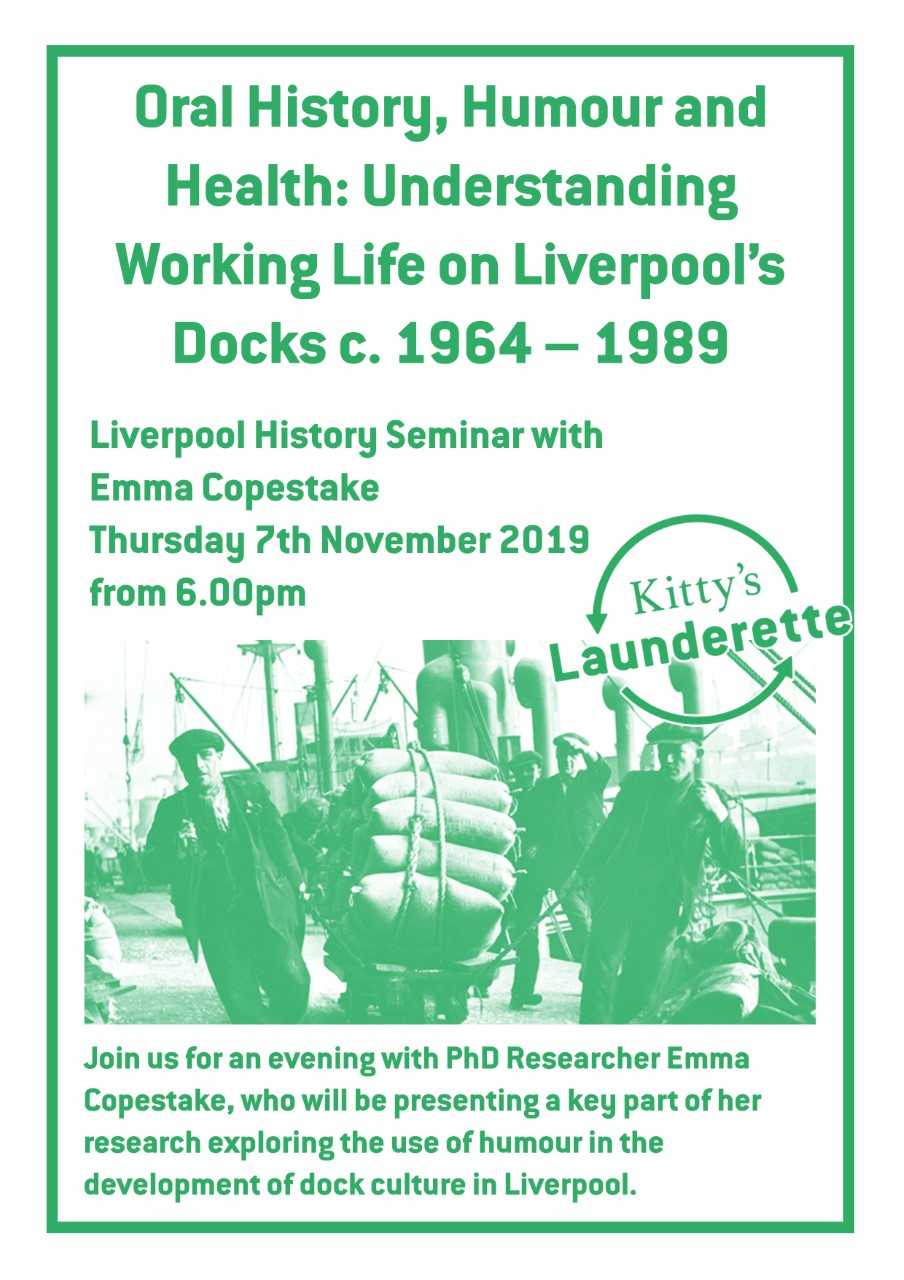
- This event has passed.
Liverpool History Seminar with Emma Copestake
November 7, 2019 @ 6:00 pm - 7:30 pm
Free
Join us for our Liverpool History Seminar Series which aims to explore the social, cultural and political history of our city. We welcome PhD Researcher Emma Copestake from the University of Liverpool, who will be presenting her research on oral history, humour and working life on Liverpool’s docks.
Emma is in her third year of her history PhD at the University of Liverpool. Her wider research interests cover; emotions, labour history, class, gender and occupational health.
The event is free and all are welcome. Tea, coffee and cake will be available by donation. The event begins at 6.00pm with the talk starting at 6.15pm with time for questions and discussions afterwards.
Full title and abstract below
Oral History, Humour and Health: Understanding Working Life on Liverpool’s Docks c. 1964 – 1989
The port has been Liverpool’s heart for hundreds of years. Families have depended upon dock work for generation after generation until a box changed everything. Containerisation was a complicated process that altered the nature of work, shaped the geography of the city and led to significant job losses in Liverpool. Dock work was never ‘just a job’, so the impact of this process is ongoing. The culture that developed from a casual system of employment in a dangerous industry has been and is still being translated into the context of today.
In this talk I will explore how oral history interviews can help to understand the relationship between the past and the present. By focusing primarily on humour, I will demonstrate how memory and culture work in tandem to produce multifaceted meanings of a particular moment in time. Humour rests upon a set of known references as we laugh when something happens that is unexpected or out of the ordinary. Therefore, this talk will begin with the history of dock work in the twentieth century to understand how dock culture developed in Liverpool. I will then examine how humour has been remembered as part of a lost era of work by focusing on nicknames on the docks. Humour has also been drawn upon when the interview topic turns to more sinister aspects of work including minor accidents and near misses. During an interview, this use of humour makes topics easier to discuss and often makes a serious incident in the past appear humorous in the present. This talk will demonstrate how memories and the way they are retold should be understood in relation to broader social and economic trends.
This talk is part of an ongoing project that raises questions about how to understand community history, culture and identity and how this should be achieved. Following the talk, I will welcome any suggestions or guidance and look forward to hearing ideas for where my work could go next.
